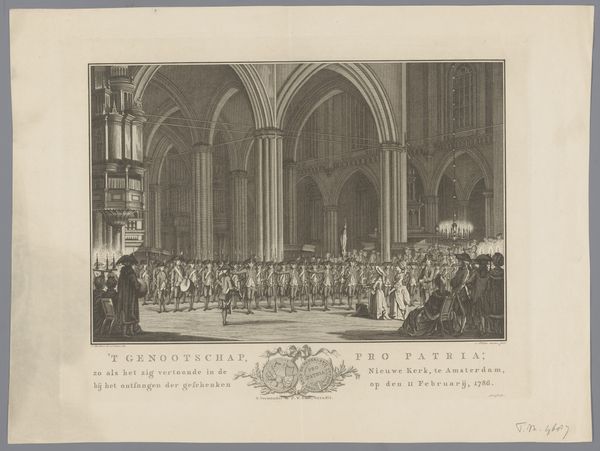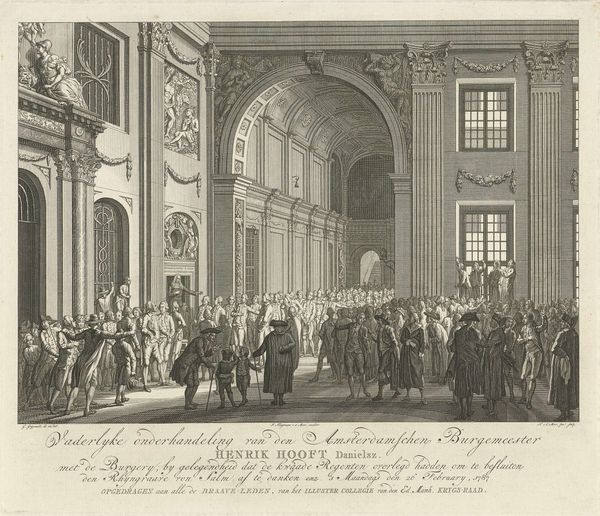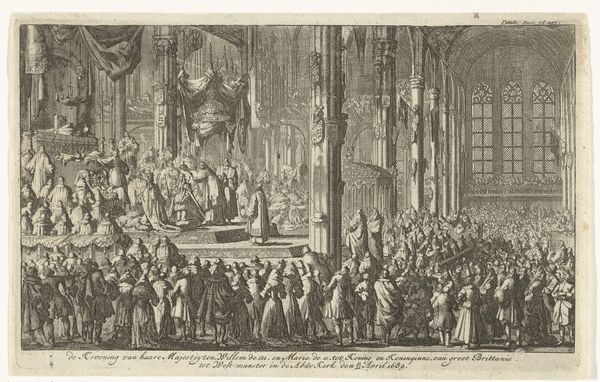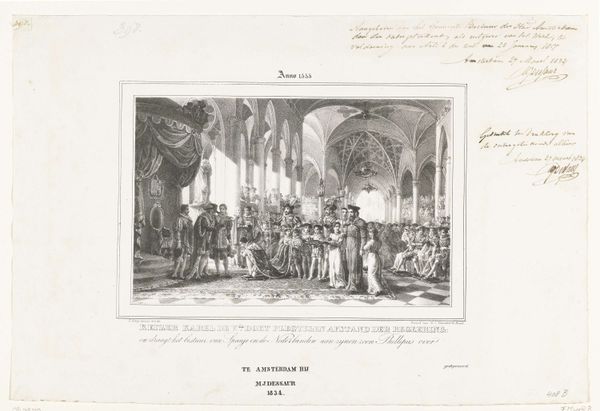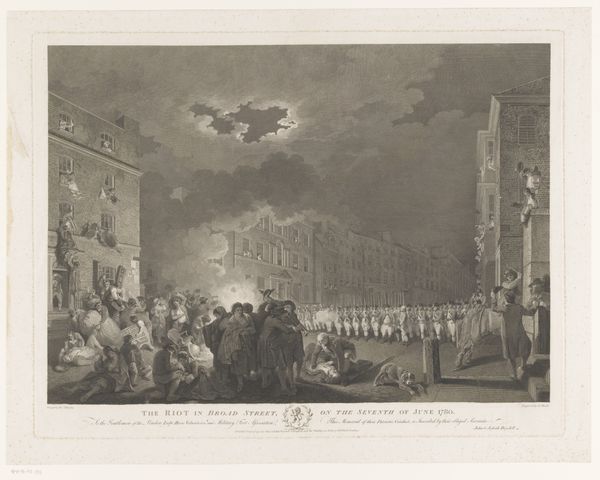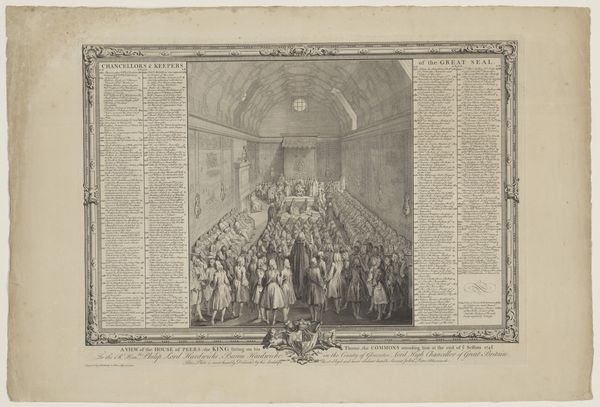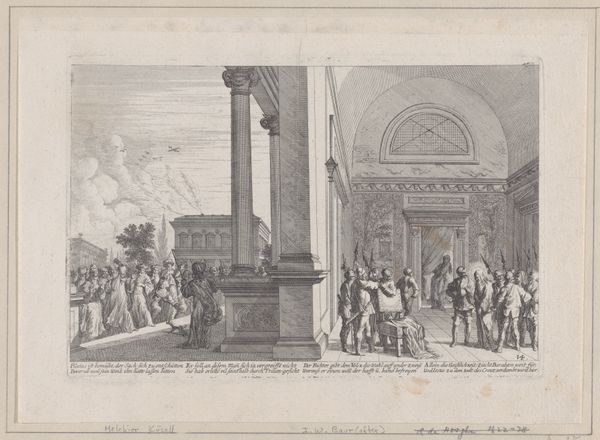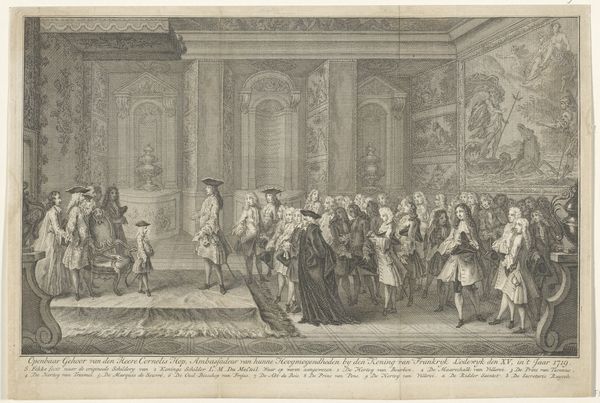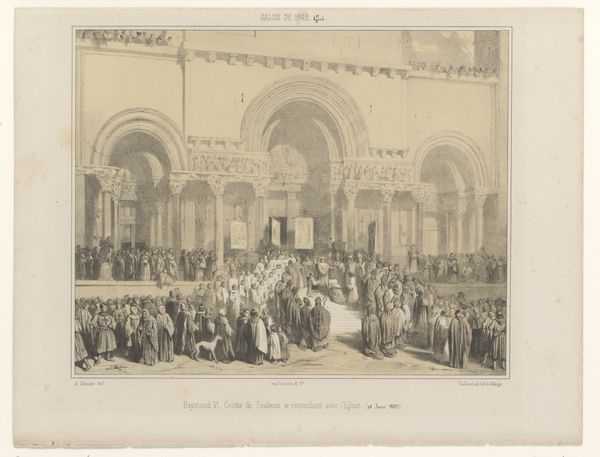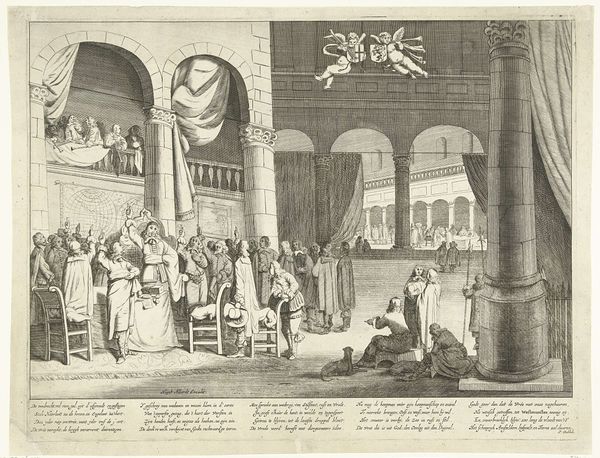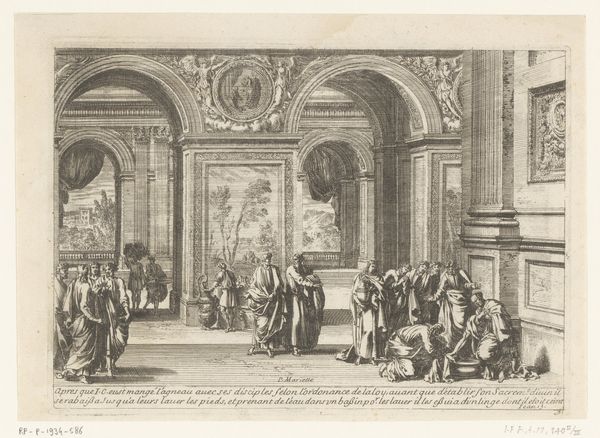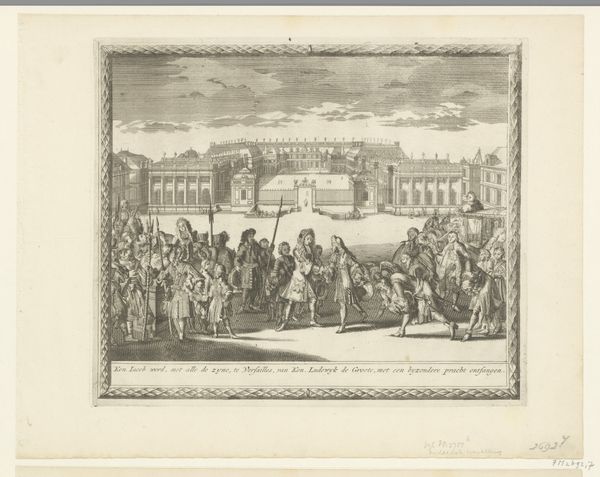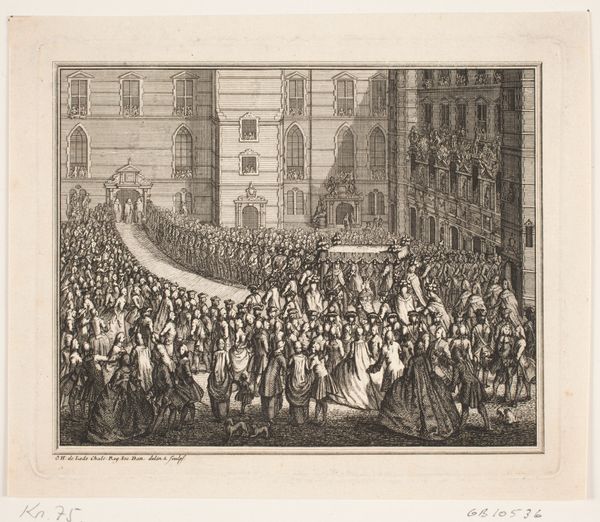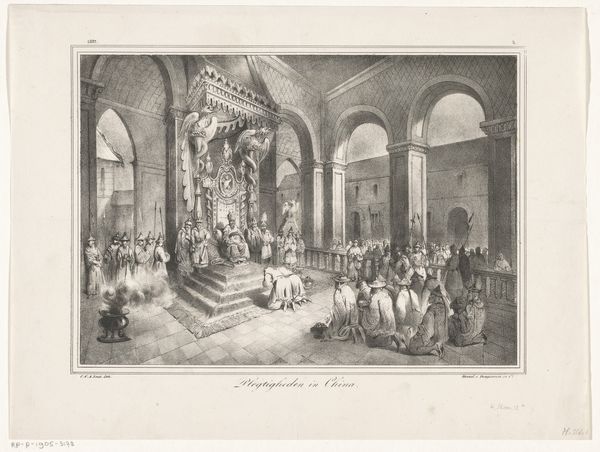
print, engraving
#
portrait
#
neoclassicism
# print
#
history-painting
#
engraving
Dimensions: 168 mm (height) x 217 mm (width) (bladmaal)
Wilhelm Heuer created this print of Frederik VI processing to church sometime around 1815. Here, visual codes tell us a lot about Denmark’s social order in the early 19th century. This image captures the performance of royal authority during a time of great social change. Heuer’s attention to detail in depicting the King’s procession – his clothing, his attendants, and the architecture around him – emphasizes the power of the monarchy and the Church. But we also see the military presence, a reminder of the state's capacity for violence and the importance of control. It’s worth noting that around this time, Denmark was transitioning from absolute monarchy to a constitutional one, a shift that would eventually redistribute power among different social classes. As art historians, we can look at sources such as political pamphlets, newspapers, and even fashion trends to understand the meaning of the artwork within its specific context. By examining these elements, we can better understand the complex relationship between art, power, and society in Denmark during this period.
Comments
No comments
Be the first to comment and join the conversation on the ultimate creative platform.
